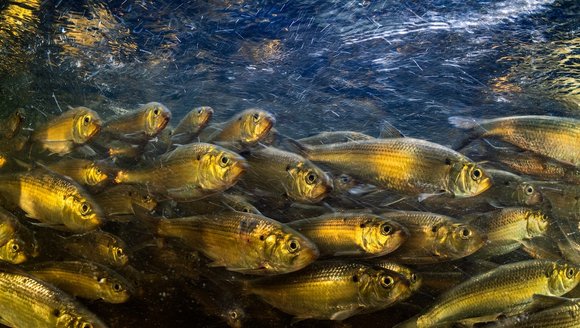Urban Heat Island Mapping Project
Understanding human-scale impact of urban heat islands in Portland and South Portland.
Urban heat islands (UHIs) are urbanized areas that experience higher temperatures than outlying areas. Through already established protocols, we aim to support a comprehensive, community driven multi-year study of urban heat islands in Portland and South Portland. Using lessons learned from this effort, we will bring expand these analyses to other municipalities throughout Maine.
Project Goals:
- Understand how the UHI effect plays out in Portland.
- Work with marginalized and underserved communities to understand the impacts of urban heat on different populations.
- Work with community members to understand and analyze the data to support change.
- Develop strong relationships with partner organizations to ensure the broadest impact of this work.
This project aims to implement established protocols for a comprehensive, multi-year study of UHIs in Portland and South Portland.
UHIs represent areas within cities experiencing elevated temperatures compared to their surrounding rural areas. These temperature disparities, driven primarily by human activities and the built environment, have adverse effects on public health, energy consumption, and overall quality of life. As the region faces warming trends, residents in densely populated neighborhoods without adequate cooling infrastructure will encounter increasing challenges around staying cool, particularly during the summer months. Given that the Gulf of Maine is one of the fastest-warming ocean regions on the planet, we feel that tracking this data is a critical step in building resilience to the impacts of climate change.
Our strategy involves utilizing a combination of static temperature and humidity sensors collecting year-round data, complemented by mobile temperature/humidity sensors following predetermined routes on peak heat days, creating comprehensive transects across urban neighborhoods. While NASA’s remote-sensed and ground temperature data provide critical insights, measuring ambient temperature approximately six feet above the ground offers a tangible understanding of the extreme heat experienced by individuals within UHIs. Collecting ground-truthed air temperature data, vividly representing the human-scale experience of extreme heat and UHIs, necessitates human participation in data collection.
Our aspiration is to foster meaningful relationships with marginalized communities in these municipalities by engaging local leaders, educators, and youth. We will be facilitating a ground-up approach for involving and engaging these communities in data collection and analysis. By creating connection within and between communities, our aim is to empower community members to actively participate in data collection and analysis, catalyzing social change.
We are currently in the process of deploying four PurpleAir sensors. We plan to collaborate with a diverse range of community partners, including minority-facing organizations to develop a protocol for UHI data capture and analysis. Through these collaborations, we aim to actively involve minoritized communities in the data collection and analysis process, ensuring our efforts resonate with their lived experiences and effectively address their unique challenges.
Project Team
Read More
-
2023 Gulf of Maine Warming Update
The Gulf of Maine experienced its fifth-warmest year in 2023, continuing the long-term trend. Sea surface temperature anomalies varied seasonally, with record breaking temperatures in …
Reports
-
The Gulf of Maine is warming fast. What does that mean for lobsters—and everything else?
National Geographic photographer Brian Skerry has been diving in the Gulf of Maine for more than 40 years. After learning these waters were a harbinger …
Press Clips
-
Gulf of Maine, Explained: Causes & Impacts of Rapid Warming
In this Gulf of Maine, Explained video, GMRI Climate Center Director Dr. Dave Reidmiller explains why the Gulf of Maine is warming faster than most …
Gulf of Maine, Explained
-
2021 Gulf of Maine Warming Update: Hottest Year on Record
With an annual average sea surface temperature (SST) of 54.14 °F — more than 4 °F above normal — the Gulf of Maine experienced its …
Announcements



